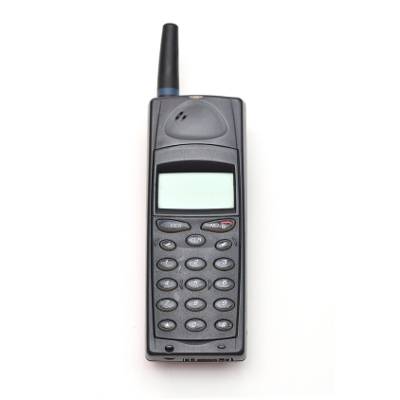The Top 5 Most Innovative Mobile Phones of 2004
 It’s the new year and most technology websites are posting cute blog articles like, “The Top Gadgets of 2014,” or “The Hottest Technologies of 2015.” That’s all well and good, but for today’s blog we want to break with tradition and write about the latest mobile technology from 10 years ago. We think this will give everybody some perspective on “The Best Gadgets of 2014.”
It’s the new year and most technology websites are posting cute blog articles like, “The Top Gadgets of 2014,” or “The Hottest Technologies of 2015.” That’s all well and good, but for today’s blog we want to break with tradition and write about the latest mobile technology from 10 years ago. We think this will give everybody some perspective on “The Best Gadgets of 2014.”
Technology has progressed so far in so little time that the world ten years ago looks like an entirely different place. Gmail, Google’s popular email application, was in its infancy. North Korea had entirely banned mobile phones, while South Korea was filled with excitement over the latest mobile technology being presented in Busan. Just what did the tech experts of 2004 think would be the future of mobile technology?
Today, new smartphones are released or updated on a regular basis. You never know when the latest technology will be outdated by something more recent and more practical. Of course, back in 2004, technology didn’t move quite as fast as it does now. Apple had only begun development of the iPhone, and mobile Internet was only a dream achieved by Japan’s I-mode mobile Internet service. Several concepts for up-and-coming smartphones were revealed. Some of these concepts were pretty close to what we see today, while others weren’t nearly as practical as was predicted.
 Pantech Body Temperature Cellphone
Pantech Body Temperature Cellphone
Smart technology is a staple in today’s society, and it allows us to detect abnormalities in our health or analyze normal bodily functions. In 2004, the Pantech Body Temperature Cellphone was already doing this (with a catch, of course). Unlike the numerous smartwatches out there which monitor the health of their users, this phone needed to be pressed against the owner’s forehead to collect information. While not the most efficient way to take your body temperature, it was an interesting concept, if you can get over being seen in public holding your bulky cellphone to your forehead.
 LG Glucose Monitor Phone
LG Glucose Monitor Phone
In theory, the LG Glucose Monitor Phone was a great idea. Blood sugar regulation is an important part of staying healthy, and this phone allowed users to measure their current blood sugar level. The downside of this device is how involved the testing process was. In order to get an accurate reading, the user needed to place a drop of blood on a glucose testing strip, then insert it into the phone for assessment. The phone would then process the blood sample and give its user a reading.
 Samsung Satellite TV Phone
Samsung Satellite TV Phone
Japanese and South Korean engineers were working toward making mobile television broadcasting a reality in 2004, but the closest their efforts came to fruition was the Samsung Satellite TV Phone. It had a separate screen which could be flipped to watch television broadcasts using its own custom satellite. It could even record up to two whole hours of video. Unfortunately, the rise of free television and online streaming wasn’t kind to this phone, and it was largely ignored. Despite this fact, smartphones have adopted several of its features, including built-in video recording and compatibility with online streaming services.
 NTT DoCoMo Fuel Cell Charger
NTT DoCoMo Fuel Cell Charger
Charging mobile technology while on the go is a topic of interest in the mobile industry, and one which is constantly trying to be improved. In 2004, you can imagine that this was an even greater issue. The NTT DoCoMo thought that it could solve this issue by using a portable fuel cell. InfoWorld describes this concept: “The idea was that small methanol cartridges would be sold in convenience stores and, when your phone ran out of power, you could snap it in the charger cradle, squirt in some methano, and be back in business.” Compared to today’s mobile chargers, this seems like an unnecessarily complicated process.
 Samsung Hard Disk Phone
Samsung Hard Disk Phone
You wouldn’t know it by looking at the latest smartphones, but the phones of 2004 didn’t have nearly as much storage space as they do now. The Samsung SPH-V5400, the Samsung Hard Disk Phone, sported a fairly impressive (for its time) 1.5 gigabyte storage space. Considering how some USB drives can hold more information that this phone, it wasn’t entirely effective. However, it was still a step in the right direction, and phones now sport impressive storage space of up to several hundred GB worth.
These mobile phones are outdated, but they were imperative steps toward developing more powerful devices. What are some of your favorite old pieces of mobile technology? Can you see modern versions of these phones in today’s technology? Let us know in the comments.


